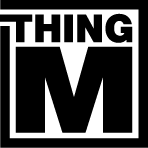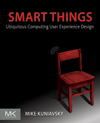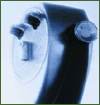In the March 11 "Technology Quarterly" the Economist had a story on domestic robotics (The gentle rise of the machines) concluded with a summation that captures my thoughts on the subject pretty well:
Commercial airliners fly and even land themselves using radar and satellite-positioning systems to navigate through fog and storms. Autonomous trains, akin to giant robotic snakes, drive themselves. All of these devices are autonomous computer-controlled machines, capable of responding to changing circumstances in accordance with orders from their human masters. They are, in other words, robots. But they are not the general-purpose mechanical men that most people associate with the term.Why not? The answer, ironically, could lie in the rapid advance of computing power. Back in the mid-20th century, when the robotic future was being imagined, computers were huge and expensive. The idea that they would become cheap enough to be integrated into almost any specialised device, from a coffee-maker to a dishwasher, was hard to imagine. Instead, it seemed more likely that such intelligence would be built into a small number of machines capable of turning their robotic hands to a range of different tasks. In place of the general-purpose housebot, however, we are surrounded by dozens of tiny robots that do specific things very well. There is no need to wait for the rise of the robots. The machines, it seems, are already among us.
I think the article's point is to clarify the definition of "robot" and "robotics," but I think the sentiment is in the right place, too. Finding words that describes our relationship to the technology of our lives helps us understand and manage those relationships. As technology becomes ever more pervasive, and as it becomes ever more intelligent, these definitions are going to start to matter more while simultaneously meaning less. People will need the words to talk about their lives, but the words will become less and less precise as new technology subverts definitions--this is continuously happening.



